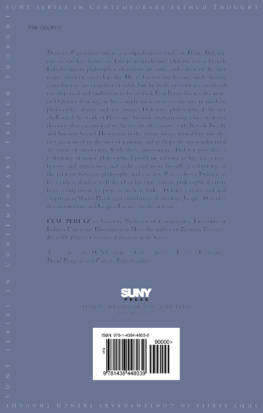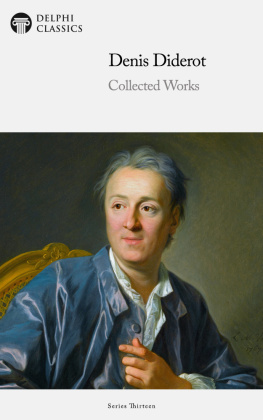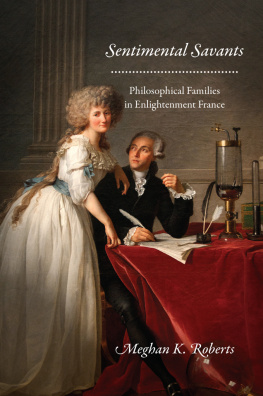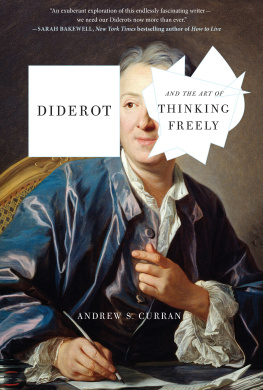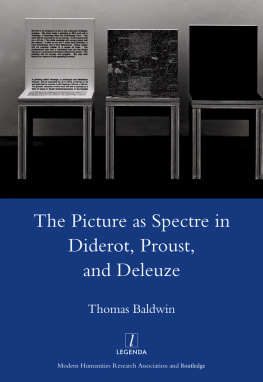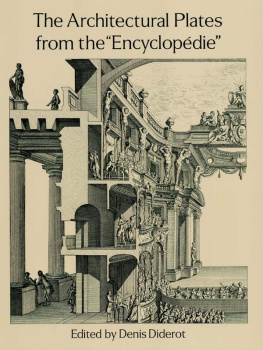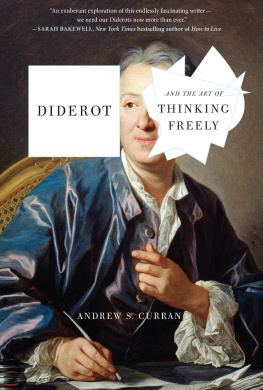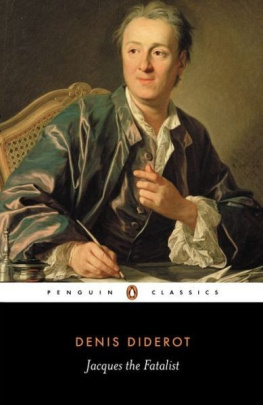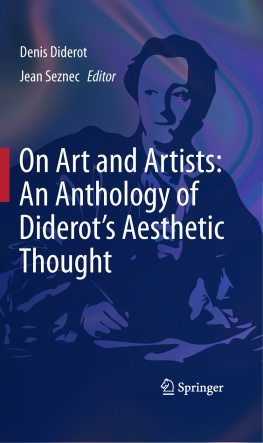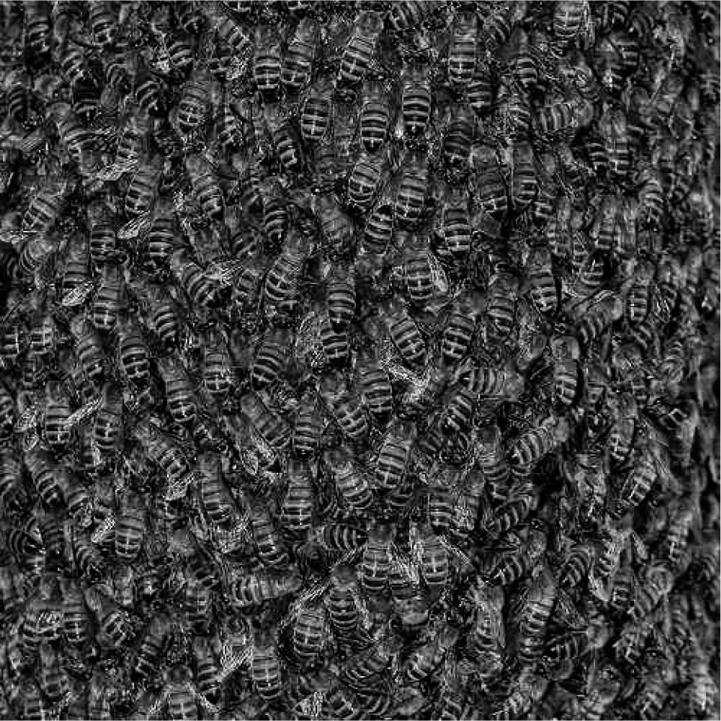DRAMATIC EXPERIMENTS
SUNY series in Contemporary French Thought
David Pettigrew and Franois Raffoul, editors
DRAMATIC EXPERIMENTS
Life according to Diderot
EYAL PERETZ
S TATE U NIVERSITY OF N EW Y ORK P RESS
Published by State University of New York Press, Albany
2013 State University of New York
All rights reserved
Printed in the United States of America
No part of this book may be used or reproduced in any manner whatsoever without written permission. No part of this book may be stored in a retrieval system or transmitted in any form or by any means including electronic, electrostatic, magnetic tape, mechanical, photocopying, recording, or otherwise without the prior permission in writing of the publisher.
For information, contact State University of New York Press, Albany, NY
www.sunypress.edu
Production by Eileen Nizer
Marketing by Michael Campochiaro
Library of Congress Cataloging-in-Publication Data
Peretz, Eyal, 1968
Dramatic experiments : life according to Diderot / Eyal Peretz.
pages cm. (Suny series in contemporary French thought)
Includes bibliographical references and index.
ISBN 978-1-4384-4803-9 (hardcover : alk. paper)
1. Diderot, Denis, 17131784. I. Title.
B2017.P47 2013
194dc23
2012045690
10 9 8 7 6 5 4 3 2 1
To my brother Assaf
Whatever I do, I try out something and observe the experiment. Now too I am experimenting today the attempt might fail. Next week it may succeed better.
(Conversation with Joseph Beuys)
Experimental science does not know what its work will produce and what it will not, but it nonetheless labours without respite. Rationalist philosophy, in contrast, weighs up the alternatives, pronounces on them, and stops there. It boldly states that light cannot be split; meanwhile the experimental philosopher merely listens without rejoinder throughout the centuries and then, suddenly, he brings out the prism, with the words, light can be split.
(Diderot, Thoughts on the Interpretation of Nature1)
CONTENTS
PREFACE

It is generally agreed that Denis Diderot, the eighteenth-century philosopher, dramatist, art and drama critic, encyclopedia editor, and novelist, is one of the fundamental figures not only of the French enlightenment, but of what we have come to understand as post-enlightenment modernity in general. What is less clear is why. If Kant, for example, is the philosopher who inaugurated modern philosophy by transforming ontology into phenomenology, overcoming the major modern divide between Rationalism and Empiricism, articulating the mystery of the conditions of a realm of objectivity without transcendence, or if Rousseau is the inaugurator of modern sensibility, the philosopher who paradigmatically posed the question of political theory and morality for the age of democracy, who exactly is Diderot, and wherein lies his uniqueness? Though occupying an important place in a variety of fields, from philosophy, to the history of the biological sciences, to literature, theater, and art criticism, Diderot seems to have never found his place, to have never really belonged. This book aims to articulate a place for Diderot, or more precisely, to articulate the significance and radical nature of his essential not-belonging.
Diderot does not exactly belong, the book claims, precisely because he is the first major thinker of an essential non-belonging, the first major thinker of what I call positive alienation. Thinking and the problem of alienation have always been related. Thinking starts with alienation. Yet the traditional task of thinking, from Plato to Rousseau, has been to articulate a condition of alienation in relation to un-alienated or prelapsarian state. Diderot marks a momentous change: alienation is no longer seen as something to be overcome; there is no envisaging of an un-alienated state. Rather, alienation is essential and constitutive. The self is originally and fundamentally not itself, or beyond itself. It contains as an intimate and internal part of what it is an excess foreign to it, that is, foreign to its capacity to fully be itself. Rather than try to overcome this alienation or excess, the thinker now tries to overcome the false theorizations that posited it as secondary in relation to an un-alienated state, those theorizations to which we can apply the general term Metaphysics. If the self is essentially alienated, it means that it does not fully belong to itself, cannot fully be in possession of itself. This fundamental non-belonging is Diderots great discovery, and it inaugurates a tradition of ex-centric (i.e., positively alienated) thinkers from Schlegel to Kierkegaard, Nietzsche, Freud, Artaud, Lacan, and Deleuze.
It is no accident that in this eccentric tradition, the question of theater and drama takes, so to speak, center stage. The thinker of positive alienation is a new type of thinker that I will call a dramatic thinker. It is important to recall that, for metaphysics, drama has traditionally been viewed as a fundamental expression of the human tendency to fall into alienation, to become, like the actor, other than himself. As such, drama was harshly criticized by Plato as well as by Rousseau. In contrast, the dramatic thinker who comes into being with Diderot understands the dramatic moment and the question of theater as fundamental and internal to the very act of thinking. The Paradox of the Actor is one of Diderots most paradigmatic texts precisely because the actor, the one who knows how not to be him/herself, becomes the figure for the new type of thinker that Diderot introduces.
The thinker of positive alienation, with Diderot, becomes also a thinker who uses images in a radically new way, or someone who establishes a new relation between thinking and the image. No less than drama, the image has been traditionally accused of being a deceptive double, an alienating power that lures an un-alienated origin away from itself. Diderot, by consensus one of the first great modern theoreticians of painting and thus of the image, transforms the very function and understanding of the image. He uses images at key points in his arguments so that, instead of pointing to an un-alienated origin, they become positive elements embodying an original alienation that they help us grasp, accept, and happily activate. Diderots images work against the Wests iconoclastic tendency.
At his profoundest, this book thus claims, Diderot is an unprecedented dramatic, imagistic thinker who revolutionizes the very task of thinking. I locate the crux of his writings novelty in the way that the questions of drama and of the image permeate his entire oeuvre. Both of these dimensions, drama and image, operate doubly in his writing, as form and content, or as having to do with the manner of writing he practices and with what this writing is about. Most of his major works, ranging from philosophy to the natural sciences to politics, are written in dramatic form as dialogues, yet he is also the first great modern theoretician of the theater, as well as the founder of a new kind of drama. All his major works make highly complex use of images at key moments in their argumentation, yet he is also widely considered to be the first great modern theoretician of painting. Obviously, Diderot is not the first thinker to write in dialogical form, nor the first to use images, yet the way he employs both is, I claim, new, and points to a fundamental transformation in the very nature of thinking and of theorizing. At the heart of this transformation is a renewed understanding of the relations between philosophythat discourse which questions the relations of the human to the totality of existenceand the artsthose strange activities that seem to engage the human with a certain foreignness that takes him/her away from him/herself and where the question of creation or creativity is at stake. The Diderotian oeuvre, I claim, opens a new dialogue between philosophy and the arts that transforms our understanding both of philosophys task and our understanding of the role and function of art in life.

